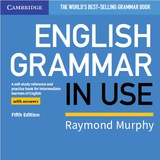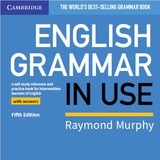tgoop.com/English_Grammar_in_Use_5th/723
Last Update:
⚡️Further reading on the differences between of have to and must⚡️
🌟 have to: OBLIGATION
This is a verb that we use to express obligation. The most common type of obligation it refers to are those that come from some external rule maker.
- You have to get a high score to enter Oxford university. (This is an obligation set by the university.)
🌟 must: OBLIGATION
‘Must’ is usually synonymous with ‘have to’ because they both express obligation. The difference is, however, that we tend to use ‘must’ when it is an obligation established internally – by ourselves.
For example, if you suddenly remember that you need to send an e-mail to your aunt to thank her for the Christmas present – use ‘must.’
- I must write to my aunt.
However, if your parents are forcing you and obliging you to write to her (therefore making it an external obligation), you use ‘have to’.
For example;
- I can’t go out, Joe, because I have to write an email to my aunt.
🌟don’t have to: OBLIGATION (absence of)
If there is absolutely no obligation to do something or to not do something, you use ‘don’t have to’.
For example;
- You don’t have to take your shoes off when you enter a church. It’s not a mosque.
🌟 mustn’t: PROHIBITION – OBLIGATION
When someone tells you that you mustn’t do something, it’s a very strong way of saying that you are absolutely prohibited from doing it.
You mustn’t serve him nuts because he’ll have an allergic reaction.
🌟 REMEMBER:
"Don’t have to" and "mustn’t" have opposite meanings.
💫 We use "don’t have to" when we don’t need to do something, when there’s no obligation.
💫 We use "mustn’t" to talk about prohibition, when there is obligation not to do something.
For example:
- You mustn’t wait here. (=it’s not allowed)
- You don’t have to wait here. (=you can do it, but it’s not necessary)
If you don’t have to do something, it means that you can do it if you want, but you don’t need to do it.
https://www.tgoop.com/English_Grammar_in_Use_5th
BY English Grammar in Use

Share with your friend now:
tgoop.com/English_Grammar_in_Use_5th/723
